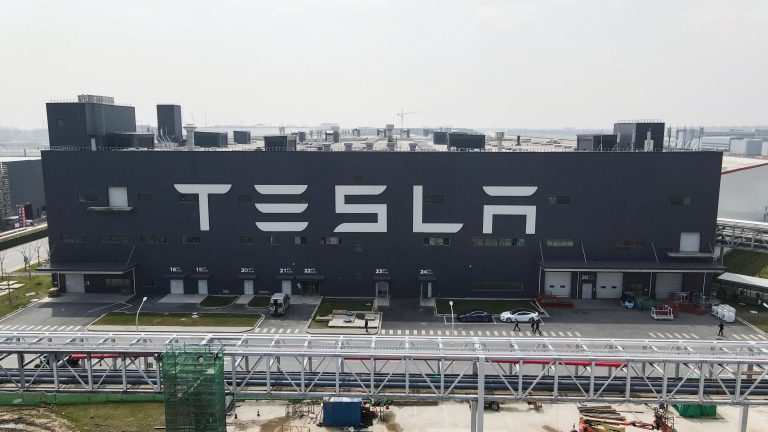Elon Musk’s Tesla has come under fire by numerous human rights advocates for opening a new showroom in the capital of Xinjiang where Chinese authorities are accused of committing human rights abuses against the Uyghur people as well as other ethnic minorities.
Tesla announced the opening of its new showroom in Urumqi with a Weibo post on Dec. 31 stating, “On the last day of 2021, we meet in Xinjiang. In 2022 let us together launch Xinjiang on its electric journey!” The post included photos of people celebrating the opening holding signs which read, “Tesla [heart] Xinjiang.”
Reportedly this is Tesla’s 211th showroom to open in China.
Sophie McNeil, a researcher with Human Rights Watch Australia told The Guardian, “Beijing and businesses have long banked on a global willingness to put profits ahead of human rights, even in the face of crimes against humanity, but we must not allow this to continue in 2022,” adding that, “Elon Musk and his Tesla executives need to consider human rights in Xinjiang or risk being complicit.”
On Dec. 23 2021, U.S. President Joe Biden, signed into law the Uyghur Forced Labor Prevention Act, a bill that imposes various restrictions related to China’s Xinjiang Uyghur Autonomous region, including the prohibition of certain imports from Xinjiang. The bill also imposes sanctions on those responsible for human rights violations there.
Success
You are now signed up for our newsletter
Success
Check your email to complete sign up
Speaker Nancy Pelosi while commenting on the bill said, “The ongoing genocide perpetrated by the Chinese government against the Uyghur people and other Muslim minorities is a challenge to the conscience of the entire world, which is why the House twice passed legislation to hold the Chinese Communist Party accountable for its exploitation of forced labor and put an end to this horrific practice,” Forbes reported.
Ibrahim Hooper, director of national communications for The Council on American-Islamic Relations urged the immediate closure of the showroom telling The Guardian, “No American corporation should be doing business in a region that is the focal point of a campaign of genocide targeting a religious and ethnic minority,” adding that the opening and continual operation of the showroom “amounts to economic support for genocide.”
The region has become the epicenter of a human rights battle. Last month Intel was accused by Chinese state media of offending the Chinese market after the company told its suppliers that they need to avoid using “labor or source goods or services from the Xinjiang region.”
READ MORE: Intel Apologizes to ‘Respected Chinese Customers’ Over Its Decision to Avoid Products From Xinjiang
READ MORE: Tales of Rape and Forced Sterilization, Uyghur Women Retell Horrors of Communist Camps
Under pressure, Intel published an apology saying that the company was only trying to comply with U.S. law that seeks to guarantee that forced labor and other abuses are absent from supply chains.
On Dec. 23, Chinese foreign ministry spokesman Zhao Lijian used Intel’s apology to dismiss reports of human rights abuses in Xinjiang. “We note the statement and hope the relevant company can respect facts and distinguish right from wrong. We have stressed many times that the allegations about forced labor in Xinjiang are lies cooked up by anti-China forces in the US with the purpose of tarnishing China’s image, undermining stability in Xinjiang and holding back China’s development,” Lijian said adding that if any company chooses not to use products made in Xinjiang that “it is their loss.”
Popular fast fashion producer H&M was also widely criticized online over its decision to distance itself from Xinjiang labor and products.
However, “Case studies of such mass online reactions have found the nationalistic backlash is often driven or amplified by Chinese state media and state-linked social media accounts,” The Guardian reported.
Chinese authorities in Xinjiang are accused of conducting a long-term campaign of forced assimilation of ethnic minorities including Muslim Uyghurs. It’s estimated that as many as one million people have been detained in mass re-education centers with the broader population being subjected to suppression of their religious beliefs as well as intense mass surveillance and policing. Credible reports of forced labor programs and forced birth control have emerged from the region.
Beijing has denied all accusations of human rights abuses saying that its policies are part of anti-terrorism efforts and poverty alleviation programs.














